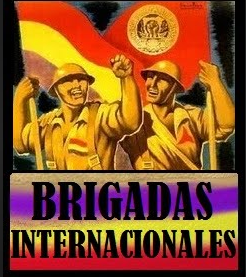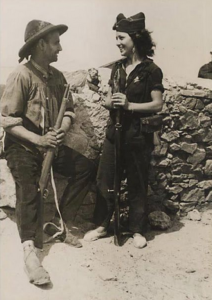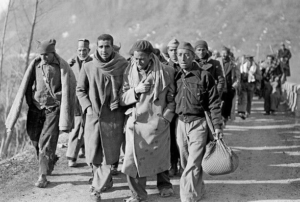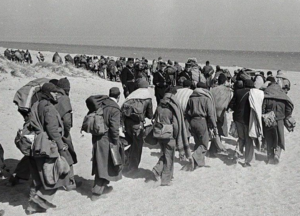
Hiking in the Pyrenees tribute international brigades.

Hiking in the Pyrenees tribute international brigades.
Over the Pyrenees International Brigades during the Spanish Civil War.
During the Spanish Civil War (1936 -1939), republicans loyal to the elected, left-leaning Second Spanish Republic fought against a revolt led by a military group, supported by Nazi Germany and Fascist Italy. Volunteers for the International Brigades came from over 50 countries across the world to help the beleaguered Spanish republic, many of them with bitter experiences of fighting against fascism and with personal scores to settle. Over 35 000 men and women left their homes to volunteer for the Republican forces, the majority of whom served in the International Brigades and international medical services.
The largest single contingents came from France, Germany, Poland, Italy, Britain, Ireland, Scandinavia, Hungary, Yugoslavia and Czechoslovakia.
Other volunteers endured long journeys from as far away as the USA, Canada, Mexico, Cuba, South America, South Africa, Australia and New Zealand.
The usual route for volunteers was to be smuggled in groups over the Pyrenees, where volunteers would be processed and divided up by nationality, into the different battalions comprising the Spanish Republican Army’s International Brigades.
Ernest Hemingway.
Published just after the end of the Spanish Civil War, For Whom the Bell Tolls, by Ernest Hemingway. This novel tells the story of Robert Jordan, a young American volunteer, as a dynamiter, he was assigned to blow up a bridge during an attack on the city of Segovia.
Rosemary Bailey.
More recently Rosemary Bailey a British writes Love and War in the Pyrenees. After many years of living in the Pyrenees she resolved to investigate the realities of the French experience of occupation during the Second World War.
The truth about Resistance and collaboration, the vital importance of the refugee routes across the mountains, and the heroic men and women who risked everything to help others escape.
The wartime experiences of the region are still very much a veiled history. The world still knows little of the French concentration camps in the Pyrenees, the treatment of the Jews, the reaction to the Spanish refugees who fled across the border at the end of the Spanish Civil War and their role in the Resistance. Many of the archives remain firmly closed.
This is a portrait of human tragedy, heroism and cruelty that will create an unforgettable portrait of the from a contemporary angle.
Rosemary Bailey brilliantly connects the history to places that can still be visited today, the Mediterranean beaches where thousands were forced into camps, the escape routes followed across the Pyrenees mountains, the Resistance hideouts and midnight parachute landing grounds, and Valmanya, the village burned to the ground in vicious reprisal.
 BarcelonaWalking Barcelona Hiking Barcelona Montserrat Costa Brava Pyrenees
BarcelonaWalking Barcelona Hiking Barcelona Montserrat Costa Brava Pyrenees

